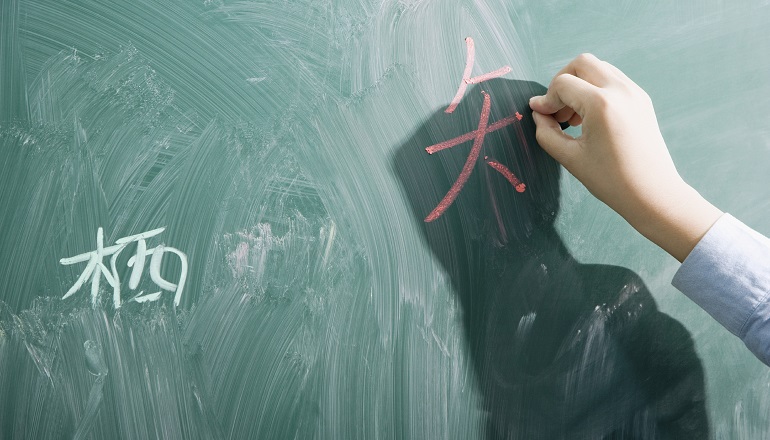Soon after we arrived home with our daughter, we considered the heartfelt pledge we’d made to Chinese officials at the time of adoption, a pledge that our daughter would grow up proud of her Chinese heritage. We live in Vermont, probably the least ethnically diverse state in the country, and keeping our word would not be easy. Mae would look different from almost all the kids around her. I wanted her to embrace that differentness, and I felt a deep connection to her birth culture. Perhaps learning (and helping Mae learn) about China would be a way of giving back to a country that had given me such great joy.
We live a half hour from a small but thriving Chinese-American community. In the mid-1980’s, a community member started The Vermont Chinese School, so that immigrants could share their cultural heritage with their American-raised children. When Mae was three years old, the School graciously provided our small group of early China adopters both space and a facilitator to begin a Chinese playgroup for our young children. We met for an hour or two a week to learn Chinese songs and games with our children. At first we were as uncertain as the school officials about what exactly we were trying to accomplish. But together, through trial and error, we gradually developed a workable curriculum and a valued connection to one another.
My daughter is now ten years old, and our class is no longer a playgroup but Mandarin Level II. The size of the class has grown over the years; we are an eclectic group of Chinese and non-Chinese adults and children, all wanting to speak Mandarin and learn about Chinese culture. We meet every Friday evening for an hour and a half with a wonderful teacher.
Attending class on Friday evenings isn’t always easy; as Mae has grown, the demands of piano lessons, sports, and homework have made time a precious commodity. I find that every September I have to recommit myself to our study of Chinese. Nevertheless, over the years, my reasons for continuing have become clearer to me–and, I think, to my daughter.
Although it is obvious that I will never be fluent in Mandarin, I enjoy what I learn and hope that one day Mae will be fluent. Learning Chinese together has brought us closer over the years. And observing Mae firsthand in a classroom setting has given me valuable insight into how she learns.
Above all, attending Chinese School has made my daughter proud of who she is, given her a tangible link to the country where she was born. In our community, she learns every day what it means to be an American; Chinese School teaches her what it means to be Chinese.
And it has provided me a glimpse into what my daughter feels like growing up as a member of a minority. Although I don’t claim my experience as an adult is comparable, I have a perspective on her life that I would not otherwise have. For Mae, Chinese School is one place where everyone looks like her, where she’s learned that she belongs to a group with a long and proud heritage. Successful, intelligent, caring Chinese adult role models have been important, as well.
As Mae gets older, other activities may become more important to her than Chinese School. But for now, even though she sometimes drags her feet on Fridays, she has never suggested that we stop attending. Now, when people ask her where she was born, she has the experience and the knowledge to be able to talk about China and adoption, if she wants to. It’s a part of her, which is what we wanted from the beginning. It’s what that pledge we made was all about.



